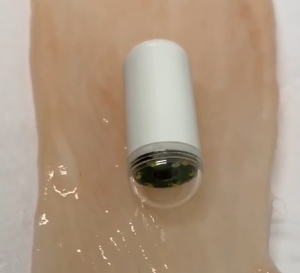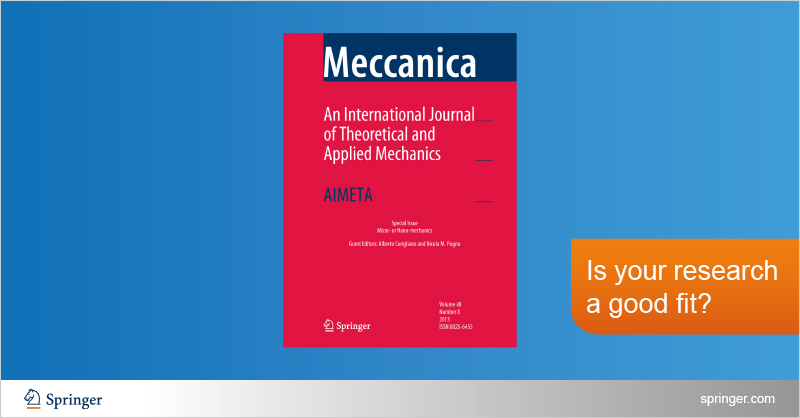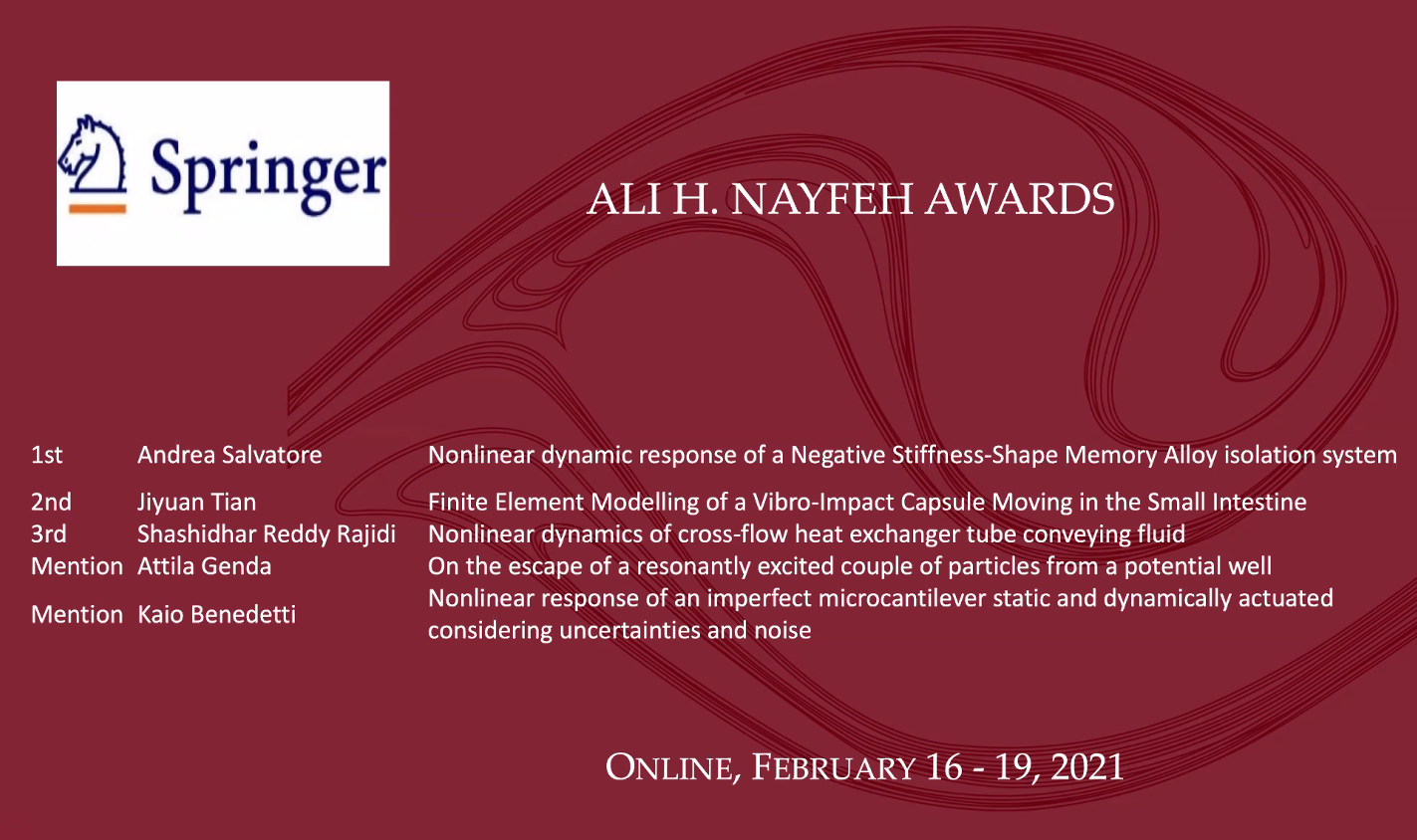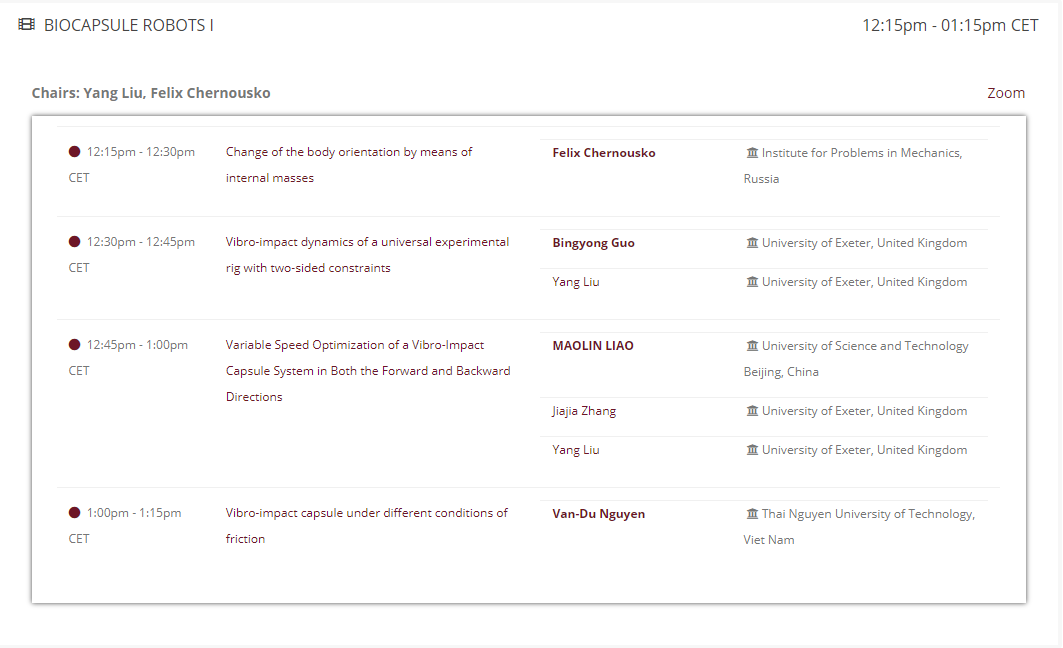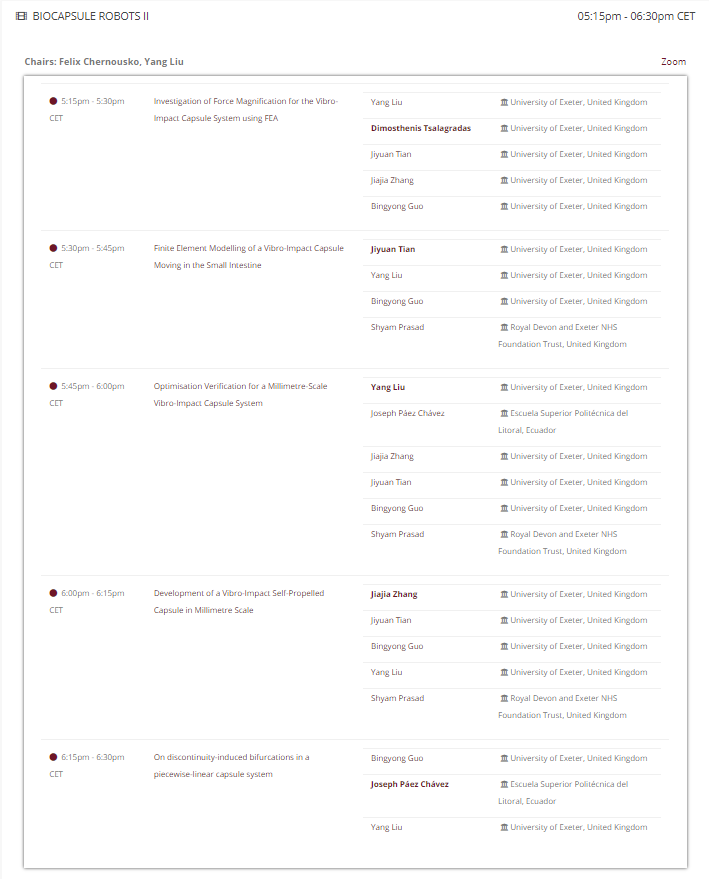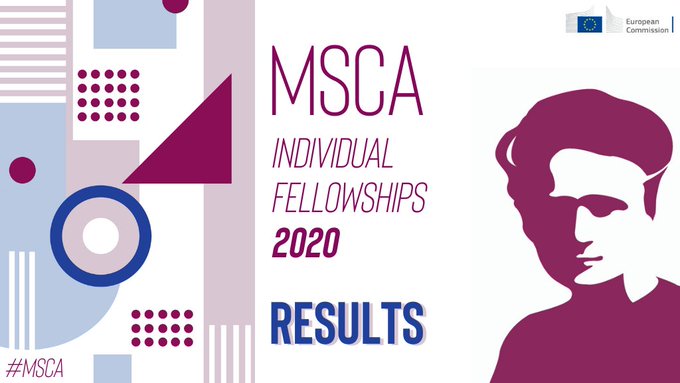Dr Liu has been awarded £200k as PI for an EPSRC New Horizons grant (EP/V047868/1) entitled “When a Micro-Robot Encounters a Bowel Lesion”. This EPSRC New Horizons call was very competitive, with about 50 projects being funded out of about 1,200 applications. This is also Dr Liu’s 4th EPSRC project out of his five applications since joining the University of Exeter in August 2016.
The project partners include the Royal Devon and Exeter NHS Foundation Trust, the Royal Infirmary of Edinburgh, Escuela Superior Politécnica del Litoral (Ecuador), ETH Zurich and Massachusetts Institute of Technology.
Project Summary: Detection of bowel cancer is currently performed by visual inspection of the colonic mucosa during endoscopy, which is less reliable for smallsized lesions that are not easily visualised. If they are not detected and removed at an early stage, there is a chance that they may become cancerous. This 24-month project seeks to develop a new mathematical tool for analysing the sensing capability of micro-robots to aid the detection of hard-to-visualise bowel lesions. Micro-robots experiencing vibrations, frictions, and impacts, known as non-smooth systems, exhibit a rich variety of different long-term behaviours co-existing for a given set of parameters, which is referred to as multi-stability or co-existing attractors. When the robot moves in the colon and encounters a lesion, some particular attractor may dominate its dynamics, while the other co-existing attractors could fade away due to the tissue’s mechanical properties associated with different stages of malignant transformation. This significant change in multi-stability can be utilised to distinguish between healthy and abnormal tissues. Dr Liu will use for the first time robot’s multi-stability through the development of state-of-the-art numerical techniques to analyse such robot-lesion correlation, and produce a suite of computational analysis and advanced control methods for cancer detection and staging. In the long term, this work will initiate a new modality for bowel cancer screening, delivering an efficient minimally invasive procedure for patients.

